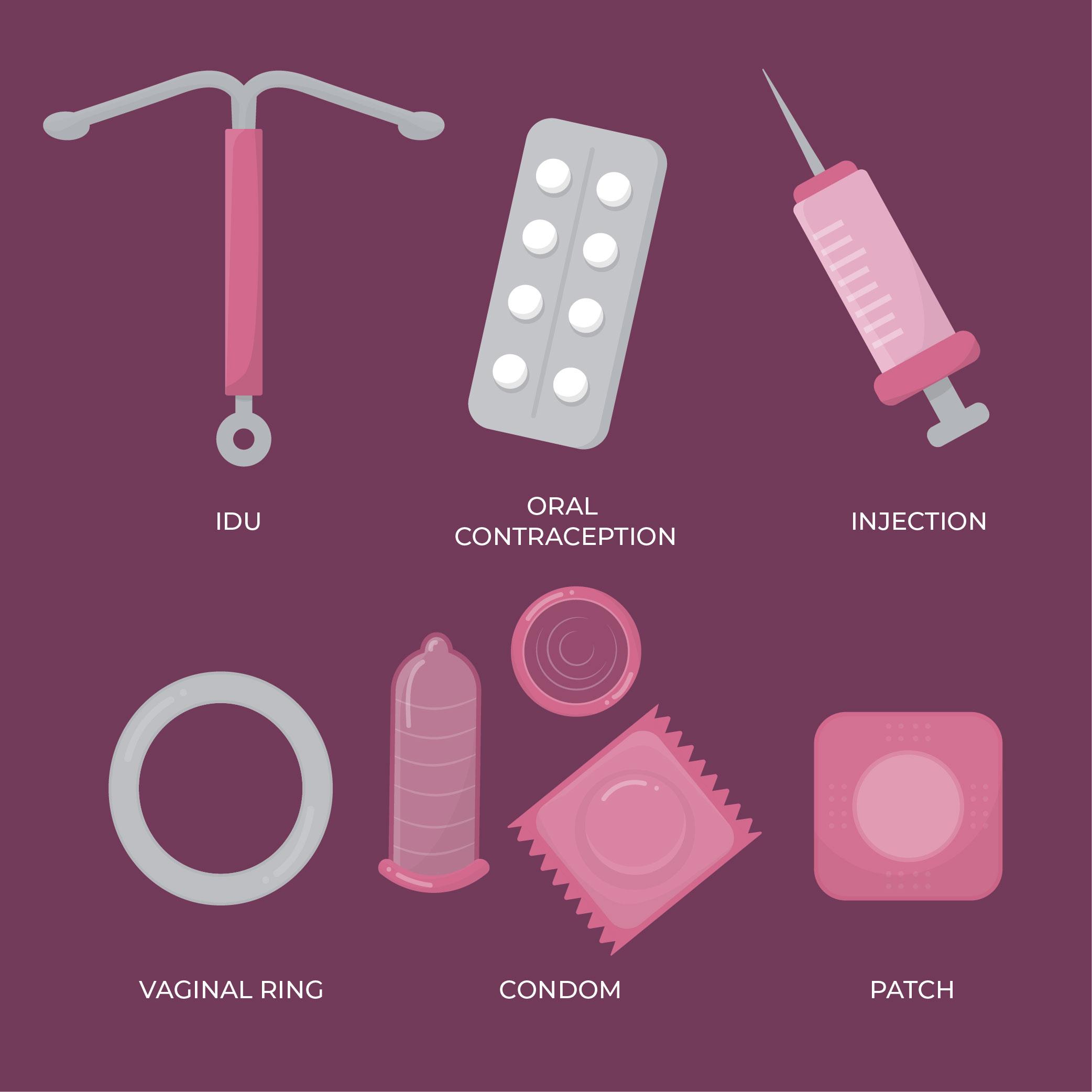Intrauterine devices (IUDs) are highly effective, long-acting forms of contraception that are inserted into the uterus to prevent pregnancy. IUDs are T-shaped devices made of plastic and/or metal that release hormones (hormonal IUDs) or are made with copper (copper IUDs). They work by creating an environment in the uterus that is unfavorable for fertilization and implantation. There are two main types of IUDs: hormonal IUDs and copper IUDs.
Hormonal intrauterine devices:
These intrauterine devices release a small amount of synthetic progestin hormone into the uterus over a specified period (usually 3 to 7 years, depending on the type).
They primarily work by thickening cervical mucus, inhibiting sperm movement, and sometimes preventing ovulation.

Common brands include Mirena, Kyleena, Liletta, and Skyla.
Copper intrauterine devices:
Copper IUDs do not contain hormones. Instead, they have a copper coil that releases copper ions into the uterus.
The copper ions create an environment that is toxic to sperm, preventing fertilization.
Copper IUDs can last for up to 10 years, making them one of the longest-lasting contraceptive methods.
The most common brand of copper IUD is Paragard.
Advantages of intrauterine devices :
Highly effective with a very low failure rate.
Long-lasting protection, requiring minimal user action once inserted.
Suitable for women who cannot or prefer not to use hormonal contraception.
Rapid return to fertility after removal.
Copper IUDs can be used for emergency contraception if inserted within a certain timeframe after unprotected intercourse.
Considerations and Effectiveness:
IUD insertion is typically done by a healthcare provider during a brief office visit.
IUDs do not protect against sexually transmitted infections (STIs).
Some women may experience side effects, such as changes in menstrual bleeding, cramping, or discomfort after insertion.
IUD expulsion (when the device partially or fully comes out of the uterus) is possible but uncommon.
Serious complications are rare but can include infection, perforation of the uterus during insertion, or embedding in the uterine wall.
Choosing an intrauterine device depends on individual preferences, health history, and reproductive goals. Consultation with a healthcare provider is essential to determine the most suitable type of IUD and to address any concerns. IUDs offer a convenient and effective option for long-term contraception, giving women the freedom to focus on their lives without worrying about daily or monthly contraceptive methods.


